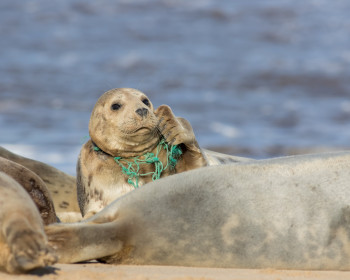IELP assisting Malawi with review of wildlife legislation
Open gallery

Lewis & Clark’s International Environmental Law Project (IELP) has been hired as a partner organization to conduct a comprehensive review of Malawi’s wildlife legislation and to make recommendations for amendment to ensure that the legislation reflects current international standards for wildlife legislation. IELP will evaluate the legislation using criteria agreed by the Parties to the Convention on International Trade in Endangered Species of Wild Fauna and Flora (CITES) and using the new Wildlife and Forest Crime Analytic Toolkit produced by the International Consortium on Combating Wildlife Crime (ICCWC). IELP has worked with a variety of governments to develop and enforce national legislation related to a variety of international environmental topics, including Morocco and Mauritius, among others.
The review of legislation came as part of Malawi’s government pledge to end wildlife crime by committing to destroy their ivory stockpiles. The pledge came in a speech following Malawi’s March for Elephants & Rhinos and the presentation of a petition - signed by over 3,700 people - asking the government to take action.
Local wildlife charities Wildlife Action Group, Lilongwe Wildlife Trust and WESM organised the march which saw hundreds from schools, civil society organisations and National Parks offices parade through the capital city to Government headquarters. They were met by the Hon. Kondwani Nankhuma, Minister of Tourism, Information and Culture who gave a rousing speech in front of Department heads and the national press in which he promised to review legislation and introduce stiffer penalties for wildlife poaching and trafficking. He also said that he was in full support of the pending assessment on illicit wildlife trade and poaching.
The assessment - funded by a German federal agency (GIZ) - will look at the entire illegal trade chain in Malawi from the source of the poaching through to transportation and supply and demand. It will also undertake a situation analysis of the strength of existing law enforcement, judiciary and wildlife legislation capabilities in Malawi following guidelines outlined in the UNODC Toolkit for Combating Wildlife Crime. GIZ will work alongside local and international NGO’s and the Department of National Parks & Wildlife (DNPW) and other Government Departments and Agencies on the project. These partner NGO’s - Lilongwe Wildlife Trust, Born Free Foundation and International Environmental Law Project - all members of Species Survival Network - are scheduled to start work on the project this month.
The Government’s commitments are a significant step towards tackling illegal wildlife trade, a hot topic in Malawi given the previous week’s high profile ivory case. $75,000 of worked ivory was confiscated at the Kamuzu International Airport which led to the prosecution and deportation of a Chinese national along with a record fine. Like so many other African countries Malawi is facing a wildlife crisis. Elephant numbers here have halved since the 1980s and Kasungu National Park, once home to over 2,000 elephants has seen its numbers dwindle to less than 200 due to poaching.
Read the full speech here: http://www.lilongwewildlife.org/2014/10/03/malawi-responds-stop-ivory-petition/.
More Environmental, Natural Resources, & Energy Law Stories
Environmental, Natural Resources, and Energy Law is located in Wood Hall on the Law Campus.
MSC: 51
email elaw@lclark.edu
voice 503-768-6649
Environmental, Natural Resources, and Energy Law
Lewis & Clark Law School
10101 S. Terwilliger Boulevard MSC 51
Portland OR 97219

